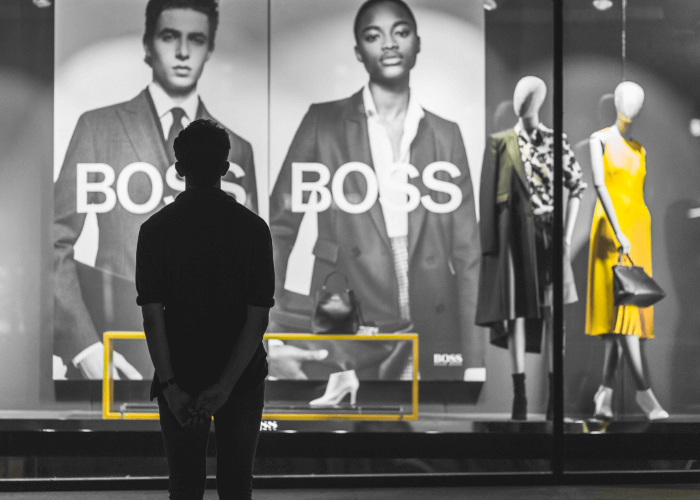Just as 2023 fall/winter fashion weeks in major cities wrapped, and magazines and fashion blogs published the hottest take on who wore what and what items will rule the streets this year, we could not help but wonder why people buy designer items.
Even when it costs a fortune.
We can only guess the price of that bodi with an attached dress positioned upside down that you won’t be able to wear without knocking someone over. Yes, we are talking about Late Stage Capitalism Waltz by Viktor & Rol at this year’s Paris fashion week, which people keep talking about. The ability to actually get one of those crazy and absurd designs is another topic entirely, but be sure, true fashion lovers would not hesitate to give their souls to the devil for having it.
Is it because it’s art? Is it because it’s a fashion lover’s dream?
Even if it's a less artistic piece, like a simple black jacket, people pay hundreds or thousands of dollars for it. Yet the question stands, why?
You pay for the name.
And the consumer knows he pays for the name, but that name gives him some kind of security and trust. We already covered that branding helps maintain a connection with consumers, but what we omitted is that the brand attachment evokes various emotions, related to the expected quality of the products, packaging, customer service, etc.
If you shopped there before, you expect to get the same or a better service next time. And if it’s a new place or a new brand, you pay attention to how it is branded and adjust your expectations accordingly.
For example, when reserving a table at a five-star restaurant, we expect pleasant service with delicious, extravagant food. Just imagine if you had to wait for two weeks to get a reservation at a fancy restaurant that just opened in your area and charges quite a lot for its dishes. You enter, sit at a table, and even if the food is mediocre, you get the worst customer service in your life. How do you feel? Disappointed? A little bit angry?
It’s because your expectations based on the branding of the restaurant were not met.
So, the brand name suggests what experience you will get purchasing the service or the product. Luxury designer items are associated with quality, various types of genuine or faux leather, intricate designs, and excellent customer service. The sales associates at designer stores are dressed neatly, they might offer you a glass of champagne and ensure that you leave the store with a smile on your face. Later, if the item gets worn out, some of the companies might even suggest repair services for free, so that you might enjoy your item for longer.
Many such items rarely lose value; just look at the most expensive designer handbags. Experts say that some of them even tripled in value after a few years – they have high-value retention. One might say it is an even better investment than real estate.
Yet quality and value are not everything. Luxury brand names are associated with just that – luxury. It’s a staple of wealth and good taste, and who does not want to appear wealthy and have good taste? For instance, the Hermes shopping experience is regarded as the most exclusive. Even if you are offered a bag you don’t actually want, you will probably be head over heels for even having a chance to buy it.
Although we started with Haute couture and designer items, which is the ultimate class symbol, this can be applied to other markets as well. For example, Apple products were once a staple of wealth. After many phone manufacturers started to price their products competitively, the wealth factor died out and the consumer’s focus shifted to the quality of the electronic device and the brand’s community. But the MacBook Air is still a standard of many modern offices.
And if we look at some of the most ordinary items, such as dairy or grain products at our local supermarkets, the consumers still pay more for nationally branded products rather than store brands. Science explains that consumers pay a reasonable premium even if the quality of both products is equal because of brand image and equity.
Thus, it all boils down to branding, the company’s image, and customers’ personal experience with the brand. And even if purchasing an item that costs hundreds of thousands of dollars seems ridiculous, if you have the money, if you love the brand, if you want to feel special, you might just swipe your card and ask for a bag.
And if you have a business and want to price your products or services outrageously, before doing that you have to ensure quality, great customer service, and pay attention to other important details. One of which is branding. And if you need help with that, don’t hesitate to reach out. We might even be able to provide branding for that upside-down dress your consumers won’t be able to wear.

